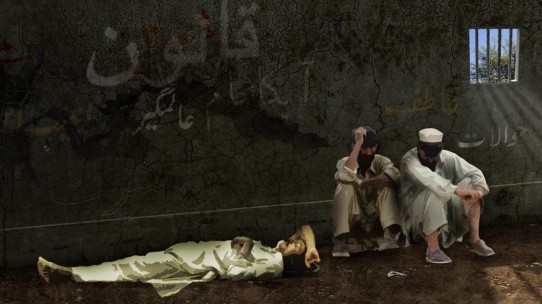
The PSB is a bail which can be secured without providing any tangible security, such as property documents or money, to the court. An application on plain paper, filed on behalf of the accused, is enough to secure the PSB, said criminal lawyer Kashif Hanif.
According to a Human Rights Commission of Pakistan (HRCP) report released in March, 81,409 prisoners in 86 jails across the country in 2009, out of which 57,556 were under-trial prisoners and 23,853 convicts.
Some of the people are being released under the new judicial policy announced in 2009 by the National Judicial (Policy Making) Committee, with emphasis on speedy disposal of cases. “Particular attention is given to timely disposal of criminal cases, especially the cases of under-trial prisoners, languishing in jails. Urgency has been accorded to cases involving violation of fundamental rights and restraint on liberty/freedom of individual. Therefore, bail matters will be quickly decided,” the policy stated.
The charges against the accused that were released from Landhi jail range from possession of an illegal weapon to armed robbery. The most common sections of the Pakistan Penal Code under which cases were filed include sections 395 (dacoity), 381-A (car theft), 382 (theft causing death), 392 (robbery), 394 (causing injury to individual during robbery) and 13-D (possession of an illegal weapon).
“When these criminals are released from prisons, it is unlikely that they will go to a mosque and pray,” said Khosa, adding that nine out of 10 times, the accused end up committing more crimes. “The police are locked in an endless cat and mouse game. We keep on catching the criminals and the courts end up releasing them,” he said.
However, there is another side to the story as well. Abdul Hai of the HRCP pointed out that countless prisoners are still languishing in jails, waiting for their cases to be heard. “At least with the PSBs, a lot of prisoners, especially the under-trial ones, will get some relief.”
This view is also held by former Supreme Court judge Justice (retired) Nasir Aslam Zahid. “The unfortunate truth is that police in our country is one of the most corrupt institutions. One of the easiest charges under which they frame people is section 13-D,” he said, adding that the courts too are to blame for the languishing of prisoners in jails as corruption is rampant in the judiciary as well.
“We’ve come across numerous instances in which cases of prisoners are not taken up simply because they haven’t paid the right people in the courts,” said Hai.
Others though, feel that the implementation of the new judicial policy is startling. “In a country where the conviction rate of courts is already dismal, the large number of people being released on personal bonds is startling,” said Hanif.
Zahid, however, places the blame for low conviction rates squarely on the police. “Their investigations in most cases are half-baked, the evidence shoddy and examinations lopsided.”
At the same time, Zahid said that the pressure on courts is one of the reasons behind acquittals. The courts are under tremendous pressure as there are only 2,000 judges to deal with a backlog of around 1.4 million cases. “Usually the court releases the suspect on bail when it observes during the case that a conviction is unlikely,” he said, adding that cases are not being decided on merit because of the high number of cases courts have to deal with.
A senior official in Punjab’s home department, prisons wing, Haji Falak Sher, confirmed that a large number of accused were also being released in Punjab on PSBs and other bails. “Last year our jails were overflowing, with the number of prisoners crossing the 60,000 mark. However, 11,000 inmates were released in 2009.”
Sher said that although the new judicial policy is in favor of releasing prisoners undergoing trial, “the problem is that many return to jail.” Moreover, there are also those prisoners who prefer to stay in jail as they are provided with food, clothing and 24/7 electricity inside the prison.
In Balochistan, though, according to Additional Secretary Prisons Rafique Ahmed, the situation is a little different. While none of the approximately 3,500 prisoners have been released on PSBs, more than 800 political prisoners have been released under the Balochistan package announced by the federal government.
However, in Khyber-Pakhtunkhwa, said Additional Secretary Prisons Mohammad Ramazan, no one has been released on PSBs. He also declined to give any facts or figures.
In the Transparency International report released this May, about 70 per cent respondents said they faced corruption in judiciary, with judges, court employees, public prosecutors and magistrates being named lead actors in illegal deals.
Given the state of affairs, until the police and judiciary become transparent and efficient as institutions, there is no other solution but to release the maximum number of prisoners from jails, even if “some” were habitual criminals, said Hai.
Published in the Express Tribune, June 7th, 2010.



1732626034-0/BeFunky-collage-(92)1732626034-0-165x106.webp)



1732621030-0/Express-Tribune-(7)1732621030-0-270x192.webp)
1732622842-0/Express-Tribune-(9)1732622842-0-270x192.webp)

1725254039-0/Untitled-design-(24)1725254039-0-270x192.webp)






COMMENTS (2)
Comments are moderated and generally will be posted if they are on-topic and not abusive.
For more information, please see our Comments FAQ